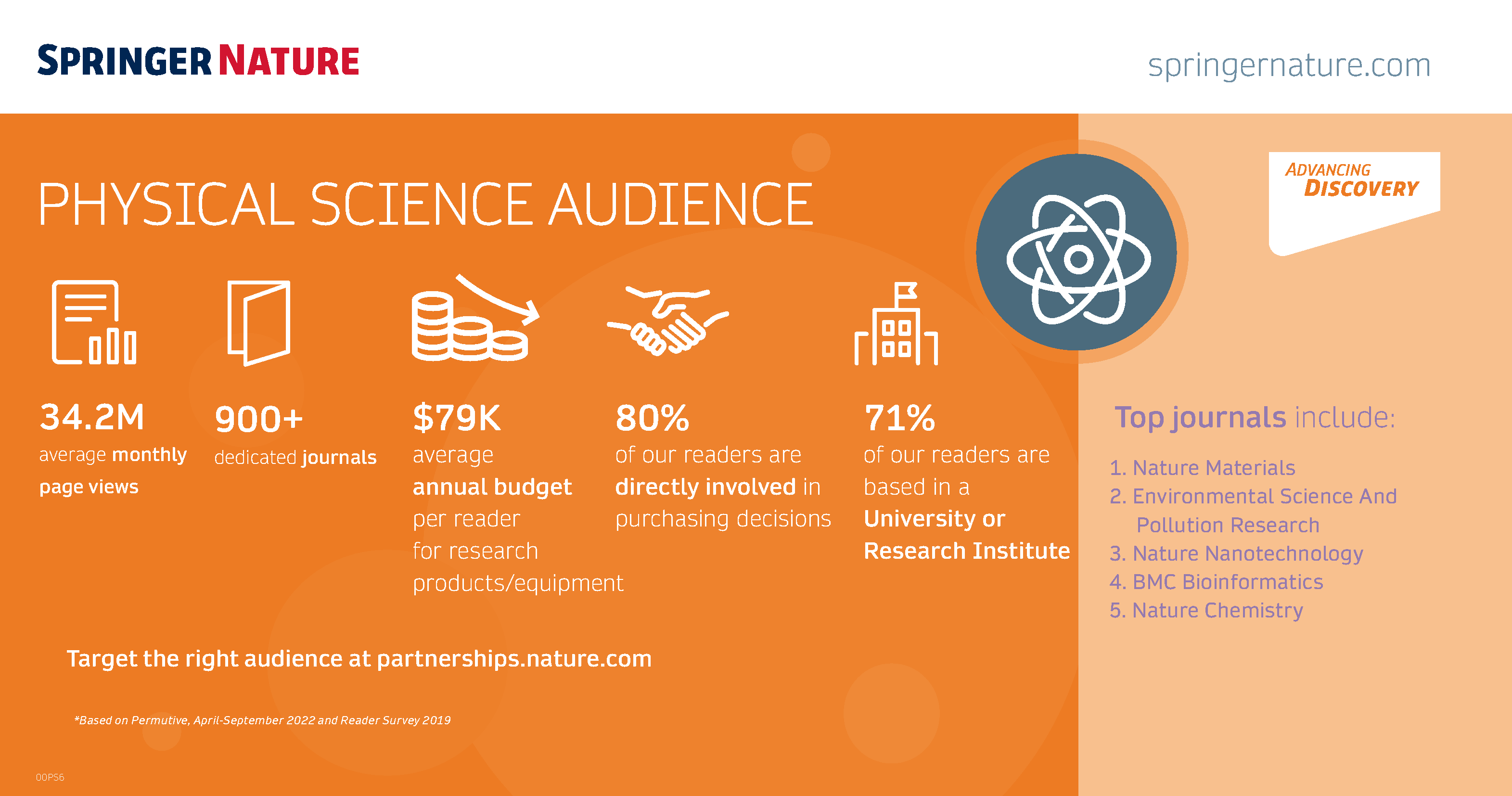Reach A Physical Sciences Audience

Who are our physical sciences readers?
- Our physical sciences audience is made up of department heads, professors, lead researchers, research directors, senior scientists, post-grads, and more.
- They are influential members of the scientific community, that control large budgets and make important purchasing decisions.
How large is the community?
- 900+ journals
- 34.2+ million average monthly page views
What top journals are they reading and citing?
- Journal of the American Society for Mass Spectrometry
- Journal of Materials Science
- Nature Climate Change
- Nature Nanotechnology
- Nature Photonics
How can you target our physical sciences audience?
- Wok with our award-winning custom media team to publish a branded content article on nature.com, driving awareness of your commitment to a particular area of research
- Advertise to our physical science audience in print and online to showcase your new product launches or attract attendance for your next event
- Use our email marketing services to get responses and qualified leads
- Create a webcast with us to engage with physical scientists in real-time
Interested in targeting particular physical science subject areas?
You can target any of the audiences in the table below, and custom audiences are available on demand.
| Analytical Chemistry | Electrical Engineering | Nanotechology |
| Applied and Technical Physics | Energy Materials | Nature Conservation |
| Astronomy, Observations and Techniques | Energy, general | Nuclear and Particle Physics |
| Astrophysics | Engineering, other | Nutrition |
| Biomedical Engineering and Bioengineering | Environment, general | Optics and Photonics |
| Catalysis | Environmental Health | Organic Chemistry |
| Ceramics, Glass, Composites, Natural Materials | Environmental Management | Physical Chemistry |
| Chemical Engineering | Food Science | Physical Geography |
| Chemical Synthesis | Geography | Physics, general |
| Chemistry | Geology | Polar Sciences |
| Chromatography | Human Computer Interaction | Quantum Physics |
| Civil Engineering | Industrial and Production Engineering | Security & Cryptology |
| Climate | Information Systems and Applications | Software Engineering/Programming and Operating Systems |
| Computer Imaging, Vision, Pattern Recognition and Graphics | Inorganic Chemistry | Spectroscopy |
| Computer Systems Organization and Communication Networks | Mass Spectrometry | Statistics, general |
| Control, Robotics, Mechatronics | Materials Science | Theoretical and Applied Mechanics |
| Database Management & Information Retrieval | Mathematical and Computational Engineering | Theory & Mathematics of Computing |
| Earth Sciences | Mechanical Engineering | Urban Studies |
| Ecology | Metallic Materials | Water, general |



